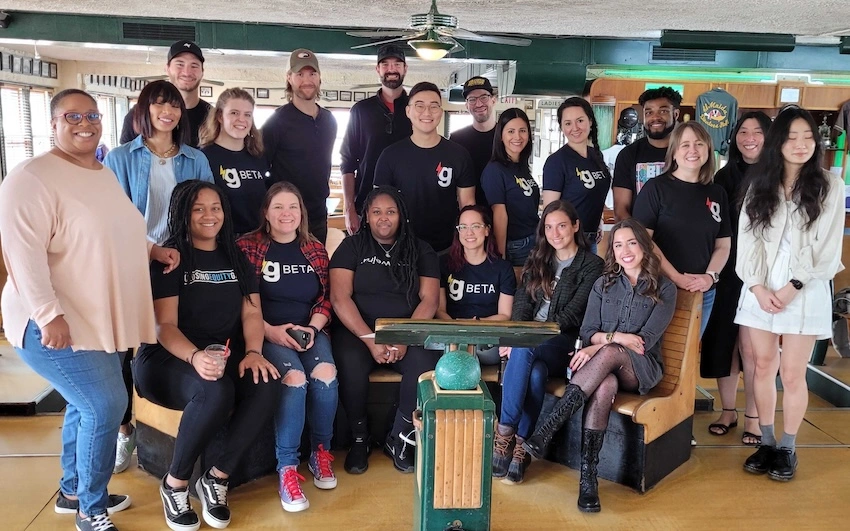Ecosystem
September 23, 2025
10 years of gBETA: Fueling (and finding) Midwest Startup Founders
Jake Westreich

Become a member & keep reading for free, or choose a paid membership.
Access all our content & email newsletter
It’s the 10 year anniversary of gener8tor’s first gBETA accelerator, originally conceived as a free accelerator meant to help nascent (often first time) founders in a given community better understand the world of startups and venture and how to build with raising VC in mind. The thinking behind gBETA was to establish a local “mayor of startupville” to field questions and offer support to prospective founders, and take the most promising of these through a concierge, cohort-based program that helped them take the dive into being a full time startup founder.
In the 10 years since, in communities from Madison to Beloit in Wisconsin, across the Midwest and now the world, we’ve spent a lot of time thinking about the pool of prospective founders in our communities, where to find them and how to help. In Wisconsin alone, over 300 early stage founders have completed gBETA, and they’ve raised over $325M in cumulative financing to date.
We have seen first hand that there is no lack of talent in the region, as discussed in great pieces on StartMidwest. Hardworking and experienced people with hands-on experience solving problems in core industries like financial services, healthcare, manufacturing, agriculture. While the region may lack a quantity of multi-time founders starting up again, the pool of potentially successful first time founders exists, and we’ve worked with over a thousand of them through the last 10 years of gBETA. Relative to coastal hubs, we have to do a little more digging to find them. To simplify this search, I like to sort prospective founders into three buckets:
- People that already associate themselves with being a startup founder.
- People that have the knowledge, experience and skills to be a startup founder, but don’t know where or how to start.
- People that are currently building something that we would associate as a startup, but lack the frameworks to understand that they’re building one.
The people in bucket #1 understand (at least at a high level) what venture capital is, the difference between a startup and lifestyle business and probably played armchair quarterback during episodes of Shark Tank. They just need help to get more done than they could on their own, and they’re off to the races from there.
these kinds of founders are all just as capable of building an impactful startup as their peers in major tech hubs.
The people in bucket #2 sometimes recognize the opportunity, but don’t realize they could build a startup if they aren’t in Silicon Valley or New York. They don’t have the opportunity to pick the brain of the exited founder living down the block. Existing support networks try to help, but could you blame someone at a Small Business Development Center in the middle of Indiana for not knowing how to help someone secure VC funding and scale an AI startup from day 0 or 1?
The people in bucket #3 are doing what they’ve always done – getting to work. They’re building something useful that provides them value. It’s an auto shop owner figuring out how to make it easier to manage insurance claims for their customers. These people are hands on with a problem, create a solution, then get back to their day to day. If you grab a coffee or beer with them and talk about the earliest stages of a startup, they’ll say something like: “Oh, so this is what that is?”
All of these kinds of founders are all just as capable of building an impactful startup as their peers in major tech hubs. They just need people looking for them, passing down tribal knowledge and lending a hand here and there. We’ve been on the lookout for these folks every day over the past 10 years, and hope that more stakeholders across the region will join us to pull more Midwest founders out of the woodwork.
As time, learnings and success compound, a first time founder from a few years back exits and can join in to help the next generation. They might (and often do) catch the bug again, and now our pool of multi-time founders has grown.
You just need to be on the lookout., You’d be amazed at the impact it can have.
Jake Westreich is Director of Partnerships at gener8tor, a venture firm and accelerator with operations across the Midwest and beyond, including multiple global programs. Based in Milwaukee, he has been an entrepreneur and small business owner as well as working for EatStreet, one of Wisconsin’s most successful startups.
Trending Stories




